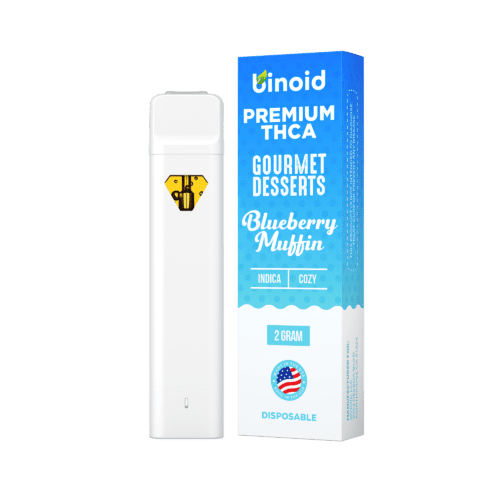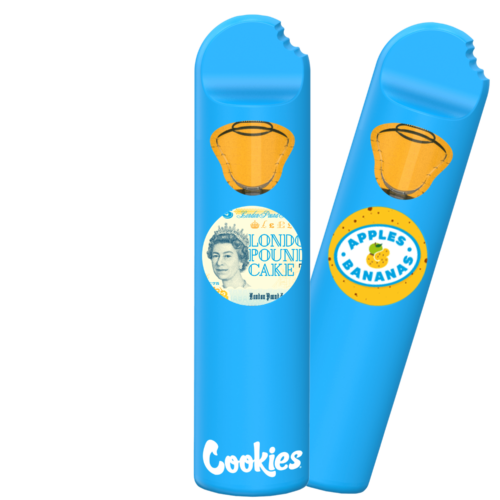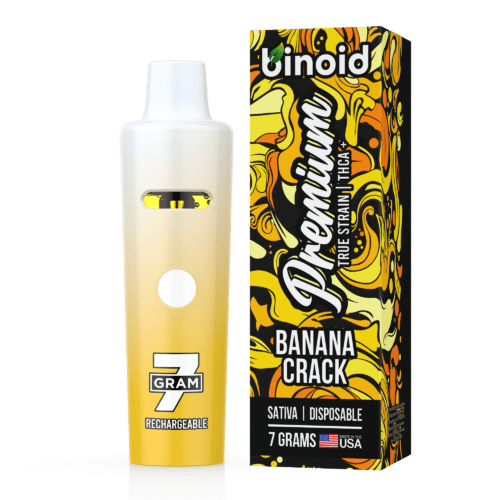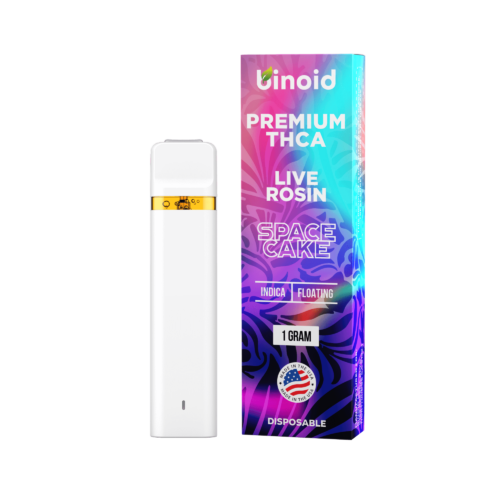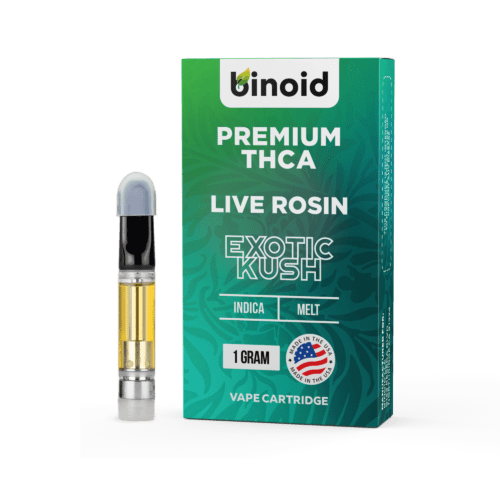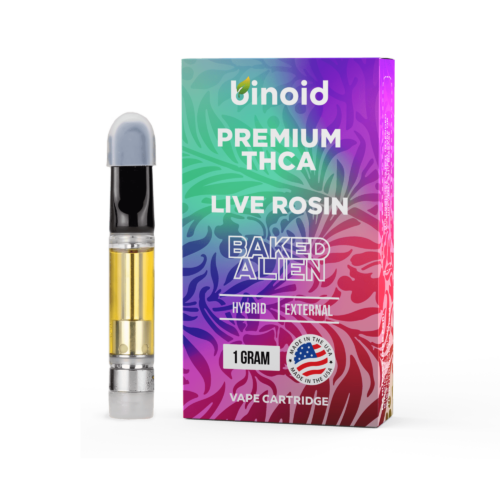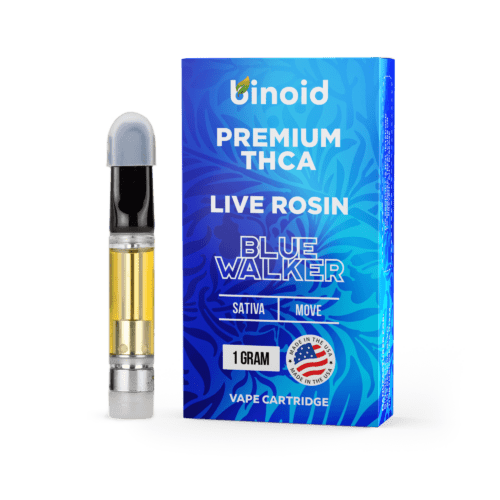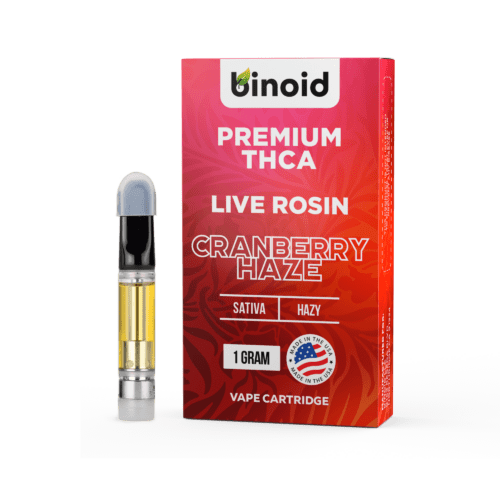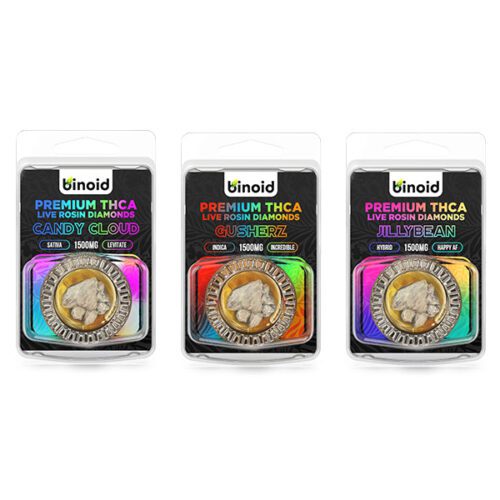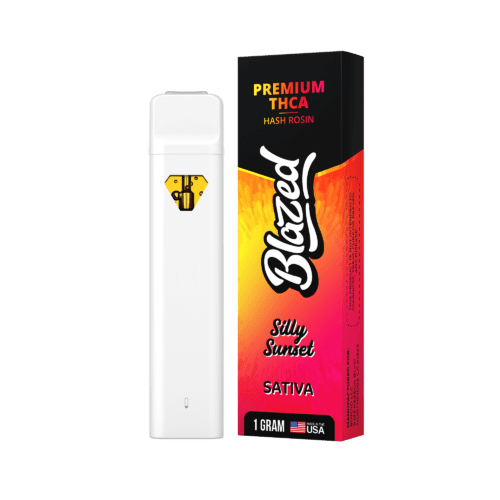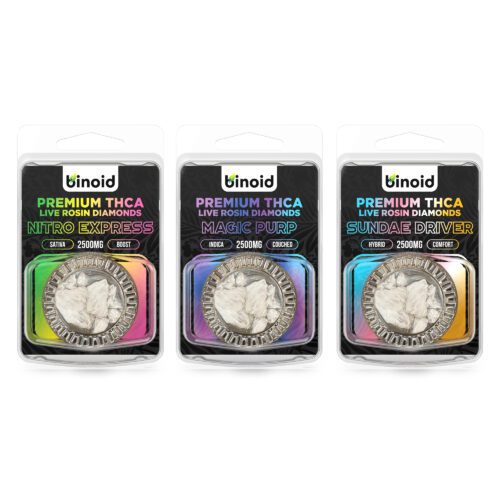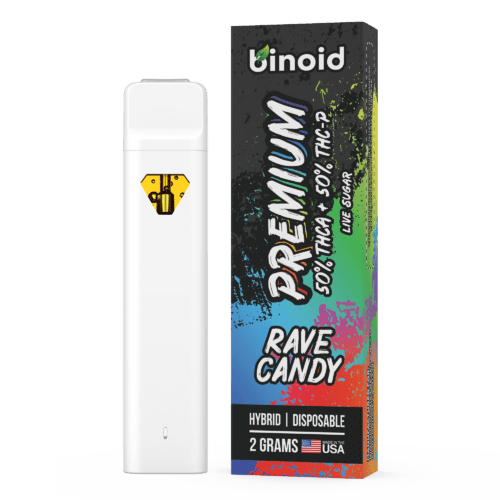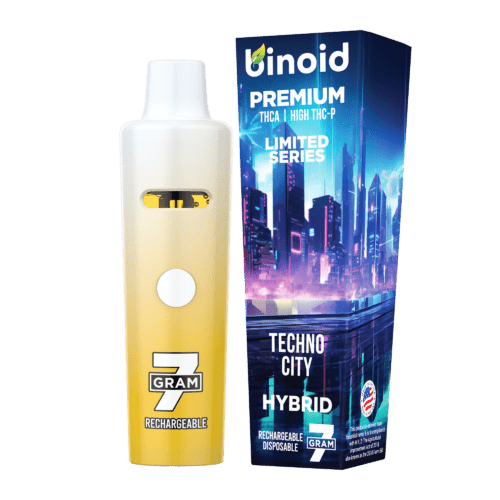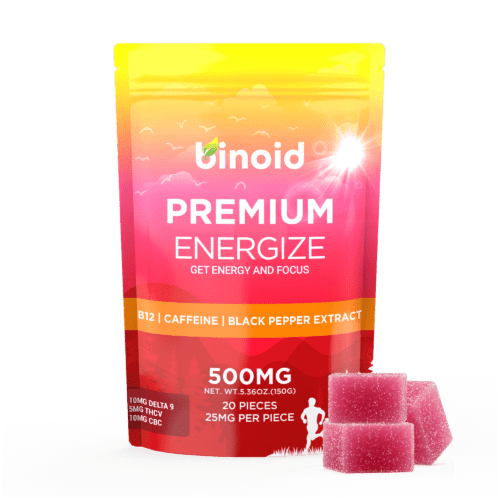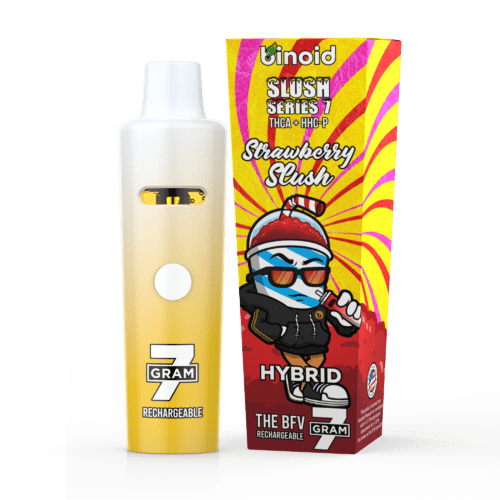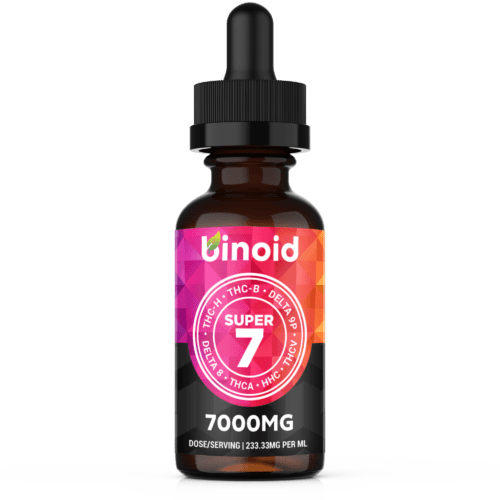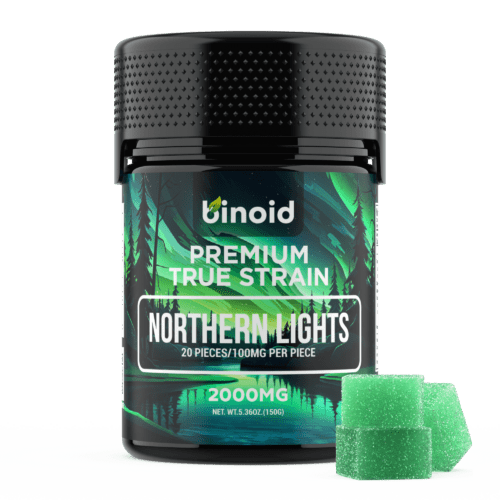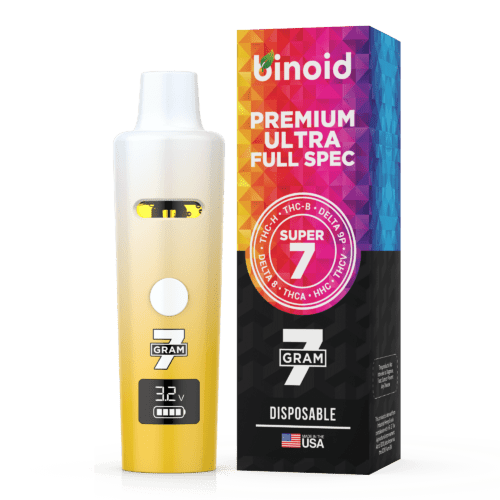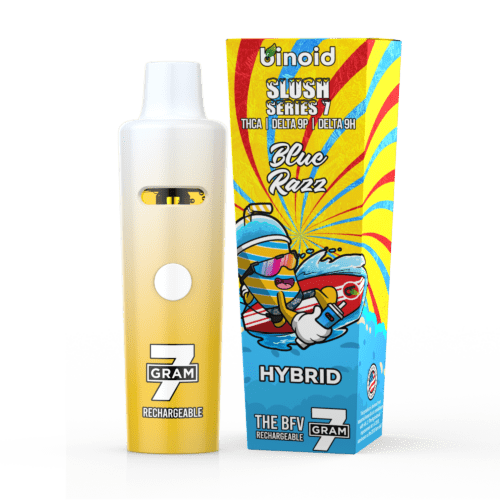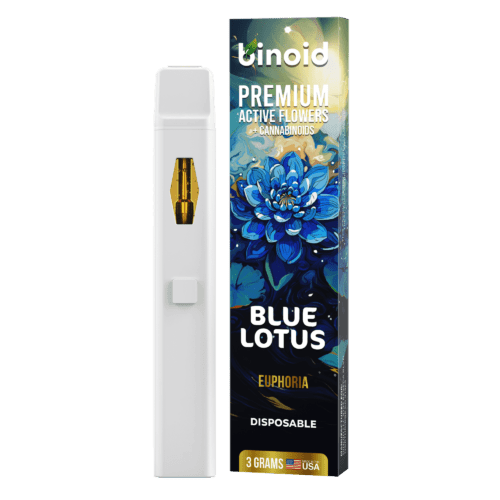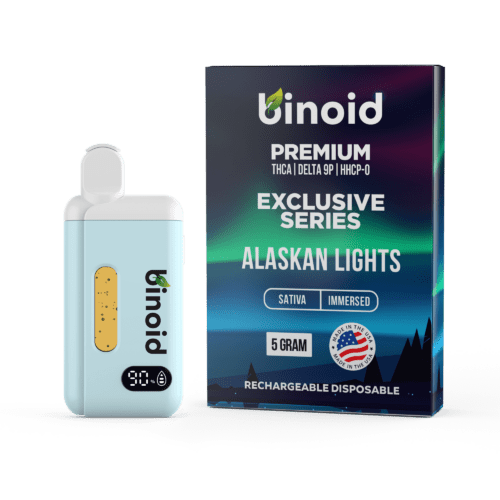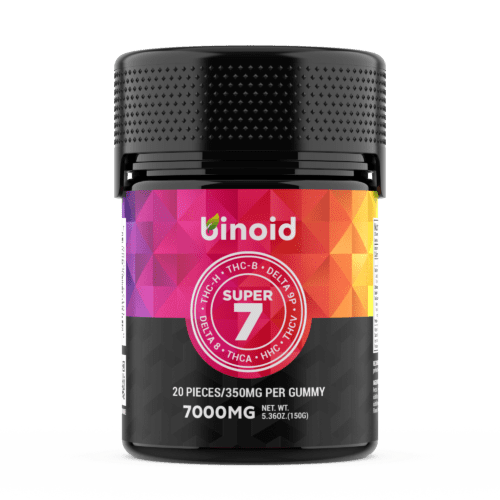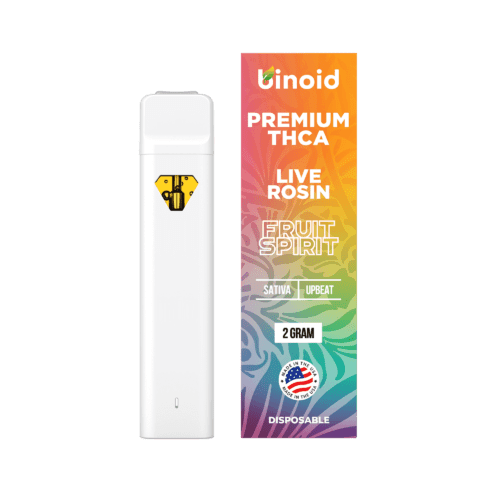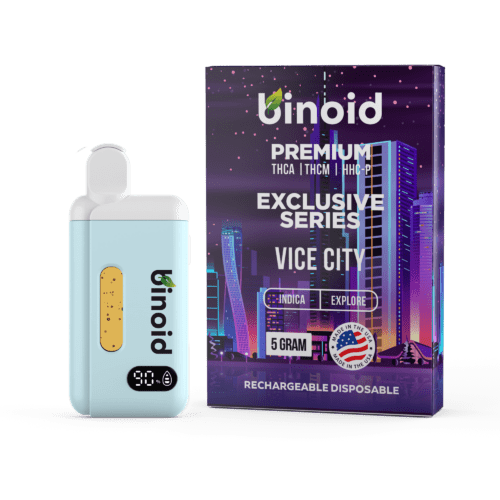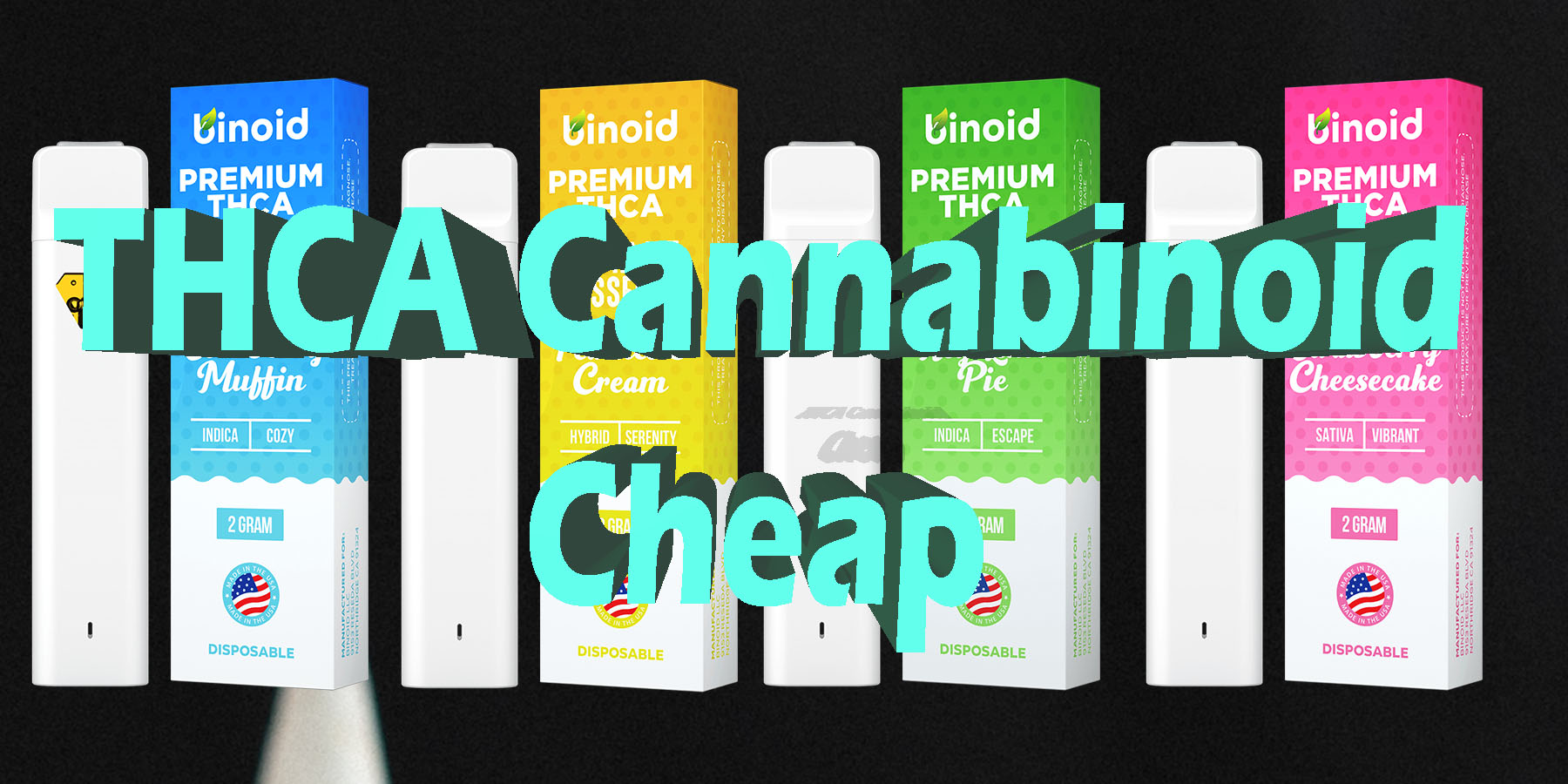
THCA Vapes and Gummies Cheap
Hey hemp enthusiasts, are you prepared to explore the fascinating world of cannabinoids and uncover the secrets to finding THCA without overspending? Great, because THCA has recently stepped into the spotlight, intriguing many with its unique properties and market position. So, if you’re curious about exploring THCA products but want to ensure you’re getting good value for your money, you’ve landed in the right place. Let’s discuss the avenues for acquiring quality THCA affordably, navigating the options like a seasoned pro, shall we.
To Buy THCA Products Click Here
Recommended products
What is THCA?
Tetrahydrocannabinolic acid (THCA) is a non-psychoactive cannabinoid that serves as the natural acidic precursor to the famous Delta 9 THC. It is abundantly found in the raw, undried flowers, leaves, and trichomes of cannabis plants, including both marijuana and hemp varieties. The scientific identification and characterization of THCA occurred alongside the groundbreaking cannabis research of the mid-20th century, particularly following the isolation of Delta 9 THC by Dr. Raphael Mechoulam and his team in 1964. Researchers soon realized that THC didn’t exist in large quantities in the fresh plant itself; instead, this acidic forerunner, THCA, predominated.
You see, getting a better grasp of THCA required recognizing its unique molecular structure, which includes a carboxyl group (COOH) that prevents it from effectively binding to the brain’s CB1 receptors, thus explaining its lack of intoxicating effects in its raw state. Essentially, the discovery and understanding of THCA evolved alongside the broader scientific exploration of cannabis phytochemistry, recognizing it as the primary form THC exists in within the living plant.
Now, the most defining characteristic of THCA is its relationship with heat through a process called “decarboxylation”. When cannabis material containing THCA is exposed to sufficient heat – through methods like smoking, vaping, dabbing, or baking – the carboxyl group is removed from the THCA molecule. This chemical transformation converts the non-psychoactive THCA directly into the psychoactive Delta 9 THC. Essentially, THCA is the dormant potential within the raw plant that unlocks Delta 9 THC’s effects upon heating. This conversion is the fundamental reason why cannabis is typically heated before consumption when intoxicating effects are desired. Understanding this transformation is crucial to comprehending THCA’s role and its unique position in the modern cannabinoid market.
The recent surge in popularity of products specifically marketed as “THCA” stems directly from the legal landscape created by the 2018 U.S. Farm Bill. This bill federally legalized “hemp,” defined as cannabis containing no more than 0.3% Delta 9 THC by dry weight. Because THCA itself is not Delta 9 THC, cannabis flower that is high in THCA but naturally low in Delta 9 THC (below the 0.3% threshold) can arguably be classified as legal hemp before it is heated. This interpretation has led to a booming market. However, the overall legal status of THCA hemp products is highly contentious, subject to varying state interpretations and ongoing regulatory scrutiny.
Why Even Consider Purchasing THCA?
Beyond its fundamental role as a natural precursor within the cannabis plant, THCA presents unique characteristics and potential advantages that are drawing significant consumer attention. If you’re exploring the cannabinoid landscape, especially while keeping affordability in mind, delving into THCA’s specific attributes highlights several compelling reasons why it might be worth considering:
A Compliant Pathway to Delta 9 Effects: Perhaps the most significant driver of interest is THCA’s unique position relative to federal hemp laws. Due to its distinct chemical structure (containing less than 0.3% Delta 9 THC in its raw state), high-THCA material can often be classified as compliant hemp. This potentially offers consumers in certain areas a legally accessible avenue to experience the well-known effects of Delta 9 THC simply by applying heat, which converts the THCA.
Facilitates Rapid Onset Experiences: THCA readily converts to Delta 9 THC through decarboxylation (heating). This characteristic makes it highly suitable for consumption methods where heat is applied, which typically result in a rapid onset of effects. Individuals who prefer or require immediate feedback and quick commencement of their desired state of relaxation or euphoria may find THCA particularly appealing due to this efficient conversion upon heating.
Potential for Significant Potency: Naturally occurring THCA concentrations in selectively cultivated cannabis can be quite high, often ranging from 15% to over 30% by weight. When decarboxylated, this high percentage directly translates into a comparable level of Delta 9 THC. This inherent potential for significant potency makes THCA attractive to users seeking robust and pronounced effects similar to those available in traditional, regulated cannabis markets.
Access to Diverse Plant Profiles: The market often presents THCA options sourced from various cannabis cultivars, frequently marketed under familiar strain names. This provides consumers with the opportunity to explore different profiles characterized by unique combinations of cannabinoids (with THCA being dominant) and terpenes. This variety allows for selection based on desired aroma, flavor, and the subtly different experiential nuances often attributed to specific plant genetics.
Potential for Economic Value: Depending heavily on regional market conditions and regulatory frameworks, THCA options sourced through the hemp market may sometimes offer a more cost-effective alternative compared to purchasing high-THC products from state-licensed marijuana dispensaries, which face significant taxes and operational costs. Comparing the cost per unit of weight or potential potency can reveal value opportunities for budget-minded consumers (where legally available and properly tested).
How to Choose Cheaper THCA
Getting a good deal on THCA involves more than just comparing price tags; it’s about securing genuine value while navigating a market with unique complexities. Because factors like legal compliance, actual potency, and overall quality can vary significantly, especially with budget-friendly options, smart shoppers know how to look deeper. So, consider these key factors below when evaluating cheaper THCA products to ensure you make a wise and informed choice:
Verified Lab Reports (COAs): This remains the most crucial step. Always prioritize access to recent, comprehensive Certificates of Analysis from reputable third-party labs. These reports are essential to confirm the advertised THCA potency, verify that the Delta 9 THC level is compliant (under 0.3% pre-decarboxylation for hemp products), and screen for potentially harmful contaminants like pesticides, heavy metals, or residual solvents. Lack of accessible, verifiable testing is a major red flag, regardless of price.
Source Material Quality & Producer Reputation: Investigate the source of the THCA and the reputation of the brand or producer. Information about responsible sourcing practices (like using quality, pesticide-free starting material) and transparent manufacturing processes can indicate a commitment to quality, even for more affordable lines. Look into the producer’s track record and general reputation within the market.
Overall Product Presentation and Integrity: While detailed inspection varies, assess the general quality indicators. Look for professional, secure packaging with intact seals. Ensure the product appears well-preserved and free from obvious signs of damage, contamination, or significant degradation. These elements offer clues about the care taken during production, handling, and storage, which are important even for budget items.
Indicated Sensory Characteristics: While subjective, consider any information provided by the brand regarding the expected aroma or flavor profile. Cheaper options might sometimes compromise on the robustness or quality of these sensory aspects (often linked to terpene preservation). Evaluating this can help set expectations for the overall consumption experience.
Cost Efficiency Calculation: To truly gauge value, look beyond the total price. Calculate the cost relative to the amount of actual THCA being offered. This usually involves comparing the price per milligram of THCA, or evaluating the cost per unit of weight/volume based on the verified THCA percentage. This calculation allows for accurate value comparisons across different product sizes, potencies, and brands, helping you identify the most economical options.
Brand Transparency and Reviews: Opt for brands that operate transparently, readily sharing information about their processes and testing. Supplement this by searching for independent customer reviews on forums or third-party sites to get unbiased feedback on product quality, effectiveness, and the overall customer experience associated with the brand, particularly its value offerings.
By carefully weighing these factors above, you can make more informed decisions when seeking cheaper THCA, thus increasing your likelihood of finding safe, effective, and genuinely valuable products that fit your budget.
Recommended products
What Types of THCA Products Can Someone Buy Cheap?
The burgeoning THCA market offers a fascinating array of product types, primarily centered around delivering the potential of Delta 9 THC through the magic of heat. For the value-conscious explorer, this diversity presents numerous opportunities to find affordable entry points, although quality and compliance remain paramount. Recognizing the nuances of each category below is key to identifying where genuine deals might lie.:
THCA Flower (Loose Buds): The absolute cornerstone of the THCA phenomenon, this is cannabis flower cultivated to be rich in THCA while remaining below the 0.3% Delta 9 THC legal hemp limit before heating. It offers the traditional cannabis experience upon smoking or vaping. Affordability is heavily tied to cultivation method and quality tier:
Outdoor Flower: Grown under the sun, this is typically the most budget-friendly option per gram or ounce. Quality varies widely based on climate, soil, and grower expertise. Well-grown outdoor can be fantastic value, offering robust natural terpene profiles, though buds might be less dense or visually perfect than indoor. Look for reputable sources offering tested outdoor flower for significant savings, especially when buying larger quantities like ounces.
Greenhouse Flower: Representing a middle ground, greenhouse cultivation offers protection from harsh elements and some climate control, often resulting in more consistent quality and better visual appeal than outdoor, usually at a mid-range price. It can be an excellent balance of quality and affordability, providing a near-indoor experience without the top-tier cost.
Indoor Flower: The premium category, grown under meticulously controlled indoor environments with artificial lighting. Indoor flower typically boasts the highest THCA potency, maximum trichome density (“frostiness”), optimal bud structure, and vibrant terpene expression. While generally the most expensive, finding “cheap” indoor might involve looking for less famous strains, bulk discounts from online vendors, or special promotions.
Exotics Flower: These are typically top-shelf indoor strains prized for unique genetics, striking appearances (e.g., deep purples, unique structures), intense aromas, or particularly high potency. They command premium pricing and are rarely considered “cheap,” aimed more at connoisseurs.
Flower Smalls (or Popcorn Buds): A fantastic value play! These are simply smaller buds harvested from the lower parts of the same high-quality plants (indoor, greenhouse, or outdoor) that produced larger, premium “top colas.” They offer virtually identical potency and terpene profiles but are sold at a significant discount due to size aesthetics. Buying smalls is one of the smartest ways to get high-quality flower cheap.
Snow Caps/Snowballs Flower: Regular flower buds (often indoor or high-quality greenhouse) that have been coated or dusted with pure THCA isolate or diamonds. This dramatically increases the THCA potency well beyond what the flower naturally contains. While visually impressive and very potent, they are priced higher than standard flower due to the added concentrate – a potent option, but not typically a “cheap” base flower choice.
THCA Moonrocks: These are potent novelty items created by taking a nugget of THCA flower, coating it in sticky cannabis concentrate/distillate (which may contain Delta 8, Delta 9, or other cannabinoids), and then rolling it generously in kief (often THCA or CBD kief). The result is extremely high potency and a slow, distinctive burn. Moonrocks are labor-intensive and packed with multiple products, making them a premium-priced item, not a source for cheap THCA, though they deliver powerful effects.
THCA Pre-Rolls / Blunts / Joints: Offering pure convenience, these are ready-to-smoke THCA flower products. Standard pre-rolled joints or cones are common. You might also find infused pre-rolls (coated with concentrate/kief like mini-moonrocks) or blunts (rolled in hemp wraps). While convenient, the cost per gram of flower is invariably higher than buying loose buds due to labor and materials. Cheaper pre-rolls might use lower-grade flower, trim, or shake, potentially impacting the experience. Look for reputable brands using specified flower quality but expect to pay a premium for the convenience in the process.
THCA Concentrates: These highly potent extracts are favored by experienced users for dabbing.
THCA Diamonds: Often considered the purest form, these are crystalline structures of isolated THCA, frequently exceeding 90% potency. They typically come suspended in or alongside a terpene-rich “sauce” for flavor and easier handling. While the price per gram might seem substantial, the extreme potency means only a very small dab is needed, making the cost per dose potentially very economical. Reputable online hemp concentrate vendors often offer competitive pricing on verified THCA diamonds.
Other Forms (Wax, Budder, Sugar, Badder): These terms describe different textures of high-THCA concentrates derived through various extraction methods. They offer slightly different handling properties for dabbing compared to diamonds. Affordable options might exist, particularly for simpler wax or shatter consistencies, but rigorous COA review for residual solvents and Delta 9 compliance is crucial, especially with cheaper products from less established brands.
THCA Vape Cartridges: Extremely popular for convenience and discretion. It’s vital to understand that the oil in most “THCA vapes” is not primarily raw THCA. To be effective in a standard vape, the THCA is typically decarboxylated into Delta 9 THC during processing or the oil is a blend of Delta 9 THC (derived from THCA) and potentially other cannabinoids like Delta 8, CBD, or various terpenes. Affordable options are plentiful online, but meticulous COA verification is non-negotiable to confirm the actual cannabinoid profile (Delta 9 levels, presence of other cannabinoids) and ensure the absence of harmful cutting agents or contaminants. Hardware quality can also have an impact pertaining to the experience with cheaper carts.
THCA Disposable Vapes: All-in-one vape pens offering the ultimate convenience. They contain oil similar to that in cartridges (usually decarboxylated D9 or blends derived from THCA). Competition drives affordability, making many cheap options available. However, the same critical need for COA verification applies regarding oil content and purity. Additionally, the built-in battery and hardware quality can be inconsistent in cheaper models, potentially leading to malfunction or wasted oil.
THCA Gummies: Gummies explicitly marketed as containing THCA are typically formulated to deliver the cannabinoid in its raw, non-psychoactive acidic form. These appeal to consumers interested in the potential properties of raw cannabinoids, rather than those seeking the effects of Delta 9 THC. Finding affordable options involves comparing the cost per milligram of actual THCA listed on the packaging and verified by COAs.
Value can often be found in larger count jars or bags. Be aware that if a gummy product does produce psychoactive effects and mentions THCA, it almost certainly means the THCA was converted (decarboxylated) into Delta 9 THC during manufacturing, making it functionally a Delta 9 gummy that must adhere to all relevant Delta 9 regulations (like the 0.3% limit if sold as hemp). Clarity in labeling and lab reports is crucial here.
THCA Tinctures: Similar to gummies, tinctures labeled “THCA” usually contain the non-psychoactive THCA cannabinoid suspended in a carrier oil, intended for sublingual or oral ingestion in its raw form. They offer flexible dosing via a dropper. Finding cheaper THCA tinctures involves comparing the total milligrams of THCA per bottle against the price, with larger volume bottles often providing a lower cost per milligram.
Again, it’s vital to distinguish these from psychoactive tinctures; if a tincture provides Delta 9 effects but mentions THCA as the source, the conversion to Delta 9 happened during production, and it should be considered and regulated as a Delta 9 THC tincture. Always check COAs for accurate cannabinoid profiles.
THCA Capsules/Tablets: These offer a convenient, tasteless, and precisely dosed method for consuming raw, non-psychoactive THCA. Each capsule or tablet contains a specific milligram amount of THCA isolate or extract. Affordability is best judged by calculating the cost per milligram of THCA, often becoming more economical when purchasing bottles with higher counts (e.g., 60 or 90 count vs. 30 count).
As with gummies and tinctures, these are intended for consumers seeking raw THCA. Any psychoactive capsule derived from THCA is, by definition, a Delta 9 THC capsule due to decarboxylation during manufacturing and must be treated as such legally and regulatorily. Verified lab reports confirming the THCA content and absence of significant Delta 9 THC (unless intended and compliant as a D9 product) are essential.
Recommended products
Potentially Buying Certain THCA Products Cheap That Also Use Cannabis Concentrates
Exploring the world of THCA often leads consumers to products enhanced with potent cannabis concentrates, and finding these at affordable price points, while challenging, is certainly possible with diligent searching.
One popular enhancement involves Live Resin, an extract celebrated for capturing the vibrant terpene profile of fresh-frozen cannabis. THCA flower might be infused or coated with Live Resin (often containing a mix of cannabinoids derived from the live plant), or vape cartridges marketed with THCA might use Live Resin as a flavorful base before potentially adding THCA isolate or ensuring the final oil blend is compliant.
While Live Resin commands a premium over basic distillates due to its quality-focused production, competitive pressures mean some brands offer Live Resin-enhanced THCA products (especially vapes or infused pre-rolls) at prices that represent good value for the improved flavor and potentially more complex effects sought by discerning users.
Another highly sought-after concentrate is Live Rosin, produced solventless using ice water, heat, and pressure on fresh-frozen material. Its purity and terpene preservation make it a top-tier choice. Finding cheap Live Rosin THCA products is unlikely, but affordable options might surface. THCA flower could be coated in Live Rosin (“hash holes” in pre-rolls), or Live Rosin might form the base of a premium vape blend containing high levels of THCA (likely decarboxylated to Delta 9 in the final vape oil).
Special batch pricing, introductory offers from new producers, or simpler grades of rosin might make these more accessible than anticipated. Comparing prices from reputable online vendors or watching for dispensary deals (where applicable for marijuana-derived versions) can uncover opportunities.
Pure THCA Diamonds, which’re essentially isolated crystalline THCA, represent another concentrate form often found affordably relative to their high potency. These diamonds (sometimes exceeding 99% THCA) are typically sold by the gram and are intended for dabbing, often mixed with terpene-rich “sauce” for flavor. While the price per gram might seem moderate to high, the extreme potency means only a tiny amount is needed per dose, potentially making it very economical for experienced users seeking powerful effects upon heating. Look for deals from online retailers specializing in hemp concentrates, ensuring COAs verify purity and low Delta 9 levels.
Liquid Diamonds is a related concentrate often found in vape cartridges marketed with THCA. This typically refers to THCA diamonds that have been melted down or mixed into a terpene-rich sauce, maintaining high potency while being suitable for vaping. Affordable vape cartridges featuring Liquid Diamonds can offer a potent and flavorful experience. As with other vapes, careful vetting of the brand and COAs is crucial to confirm actual cannabinoid content (often mostly Delta 9 after decarb for vaping) and purity, but competitive pricing makes this a popular value option for potent vape effects derived from THCA.
Furthermore, Live Hash, particularly high-quality bubble hash made using ice water extraction methods on fresh-frozen cannabis material, can be a source of potent, solventless THCA concentrate. As the direct precursor often used for crafting Live Rosin, well-made Live Hash itself captures a rich profile of cannabinoids and delicate terpenes from the living plant. While full-melt six-star hash commands premium prices, lower micron grades or full-spectrum batches might be found more affordably from reputable online hemp vendors or within dispensary inventories. This offers consumers a potent and flavorful THCA experience, suitable for dabbing or enhancing flower, often at a better value point than refined rosin while retaining the solventless purity appeal; meticulous COA review for potency and purity remains important.
Another popular concentrate form potentially rich in THCA is Live Batter (sometimes spelled Badder), known for its distinct opaque, whipped, cake-batter-like consistency. This texture is typically achieved through post-processing techniques applied to Live Resin, which is itself extracted from fresh-frozen cannabis using hydrocarbon solvents like butane or propane.
Live Batter is prized for being relatively easy to handle and portion for dabbing while still retaining a very high concentration of the volatile terpenes preserved by the live extraction process, offering intensely flavorful experiences. Affordable grams of high-THCA Live Batter might be found through competitive online retailers or dispensary promotions, providing potent effects, but the absolute necessity of scrutinizing COAs for minimal residual solvents is paramount given the extraction method.
Similarly, Live Sugar presents another textural variation of potent, terpene-rich concentrate that can feature high levels of THCA. This form typically resembles wet, granulated sugar, consisting of small cannabinoid crystals (potentially THCA crystals) immersed in a viscous, highly aromatic terpene “sauce”. Like Live Batter, it’s usually derived from fresh-frozen material via solvent-based extraction methods designed to encourage this specific crystalline-sauce separation.
Live Sugar offers a compelling balance of potency from the small crystals and intense flavor from the surrounding terpene fraction, making it popular for dabbing. Value-conscious consumers might find affordable grams online or through dispensary deals, but again, rigorous verification of COAs to ensure purity, potency, and especially the absence of harmful residual solvents is crucial for safe consumption.
Ultimately, while concentrates inherently increase potency and often price, the competitive nature of the hemp market means that THCA products incorporating these can sometimes be found at surprisingly affordable price points per gram or per dose, especially when sourced from reputable online vendors offering competitive deals. Again, diligent COA verification remains paramount for all concentrate products.
Potentially Buying THCA Products Cheap That May Also Combine One or More Cannabinoids
It’s quite feasible, and actually quite common, to find affordable THCA products that’re intentionally blended with a spectrum of other cannabinoids to achieve specific effects, potencies, or price points. I made some minor adjustments to have to look like this:
For starters, a common strategy involves incorporating non-intoxicating cannabinoids, readily and affordably sourced from hemp, into these formats. For instance, CBD is often added to budget-friendly vape oils or tinctures with the aim of potentially softening the sometimes intense psychoactive onset of pure Delta 9 THC, creating what many perceive as a more balanced or mellow effect suitable for a wider audience.
Similarly, CBG might be formulated into affordable vapes or tinctures, sometimes marketed towards enhancing focus or providing a unique bodily sensation (without making specific health claims), allowing brands to differentiate their value lines. In gummies and especially tinctures or vapes designed for evening use, CBN, often associated with relaxation, is frequently included alongside the THCA-derived Delta 9 to create affordable blends targeted towards unwinding at the end of the day.
Less commonly, CBC might appear in full-spectrum style tincture or vape formulations aiming for broad cannabinoid interaction without significantly increasing cost. These non-intoxicating additions enable manufacturers to offer diverse, nuanced, and often very affordable vape, gummy, and tincture options built upon the psychoactive base derived from THCA.
It’s also extremely common to find affordable vape cartridges, disposable vapes, gummies, and tinctures where the Delta 9 THC generated from THCA is purposefully blended with other psychoactive cannabinoids to achieve distinct effects or potencies, leveraging the competitive economics of the hemp market. Delta 8 THC is arguably the most prevalent blending partner found in inexpensive vapes and often gummies; combining it with the THCA-derived Delta 9 allows manufacturers to offer a potent product with potentially more balanced or body-centric effects than Delta 9 alone, hitting a popular price-to-experience ratio.
For users seeking more specific moods from their affordable vapes or perhaps tinctures, cannabinoids like Delta 10 THC, THCM, or THCV are added to impart qualities often described as more uplifting, energetic, or suitable for daytime activities. In some competitively priced vapes, gummies, or tinctures, additional compliant Delta 9 THC (if the total remains under legal limits for hemp products) or the less common Delta 11 THC might be included simply to maximize the overall THC concentration affordably.
Furthermore, targeting users seeking maximum intensity, potent novel cannabinoids like HHC (known for strong effects and legal ambiguity), THC-P (exceptionally potent), HHC-P (a synthetic cannabinoid derived from hexahydrocannabinol (HHC) and is considered a highly potent psychoactive compound), HHC-B (a cannabinoid derivative that is produced by hydrogenating THC-B), HHCP-O (aka HHCP-O-acetate, it’s a semi-synthetic derivative of the cannabinoid tetrahydrocannabiphorol (THCP) and is produced by initially hydrogenating THC-P to form hexahydrocannabiphorol (HHCP), then acetylating the OH group), THC-H, THC-B, PHC, or THC-JD can be frequently incorporated into affordable formulations, thus delivering powerful euphoric or relaxing experiences that significantly exceed the effects of Delta 9 alone, offering high impact at accessible price points primarily within the vape category. These diverse psychoactive blends allow manufacturers to segment the affordable market effectively, offering tailored experiences from balanced to energetic to intensely potent within vapes, gummies, and tinctures derived from THCA.
Recommended products
Where to Buy THCA Cheap
Navigating the market to find affordable THCA requires understanding where different types of THCA products are typically sold and the factors influencing their price and legality. The landscape is unique due to THCA’s conversion to Delta 9 THC upon heating and the legal interpretations surrounding high-THCA hemp flower. Here’s a guide to the potential purchasing locations:
Licensed Dispensaries: State-licensed medical or recreational cannabis dispensaries are the primary legal source for high-THCA marijuana flower and concentrates. They operate under strict state regulations, offering products that are typically well-tested for potency (including THCA and Delta 9 levels) and contaminants.
Staff can provide guidance on strains and effects. However, these products are usually just labeled as “cannabis flower” or by strain name, rather than specifically marketed as “THCA products” in the way hemp products are. Due to state taxes and regulatory costs, dispensary prices are generally higher than those found in the hemp market. While you might find deals or value tiers within a dispensary, it’s typically not the first place consumers look when specifically seeking “cheap THCA” marketed under the hemp framework.
Licensed Suppliers/Specialty Stores: These physical retail stores are major outlets for hemp-derived THCA flower, pre-rolls, and sometimes vapes or concentrates marketed as compliant under the Farm Bill (i.e., <0.3% Delta 9 THC before heating). Selection can vary widely, and prices are generally higher than online due to retail overhead but potentially lower than dispensaries. Legality and quality are major variables.
Many states or localities have specifically restricted or banned the sale of high-THCA hemp flower, viewing it as circumventing marijuana laws. Always verify your local regulations. Quality control depends heavily on the shop’s sourcing and vetting; insist on seeing COAs that confirm both high THCA content and, crucially, low pre-decarboxylation Delta 9 levels. Finding cheap, reliable THCA here requires careful shopping and verification.
Online Retailers: The internet is arguably the largest marketplace for products marketed as federally compliant THCA flower, concentrates, and vapes. Numerous online vendors like Binoid for instance, specialize in these products, offering a vast selection of strains, product types, and quality tiers. Intense competition often leads to the most competitive pricing, with frequent sales, bulk discounts (e.g., cheaper prices per ounce of flower), and loyalty programs.
Reputable online sellers provide easy access to COAs, which are essential for verifying THCA/Delta 9 levels and purity. However, the online space requires extreme diligence. Thoroughly vet vendors, check independent reviews, meticulously scrutinize lab reports, and critically confirm the legality of shipping high-THCA hemp products to your specific state, as restrictions are common, and laws change frequently. Done carefully, online is often the best route for finding affordable, tested THCA products where legally accessible.
Online Wholesalers: Similar to other cannabinoid markets, some wholesalers dealing in bulk hemp flower or THCA isolate/distillate may sell directly to consumers meeting high minimum order quantities. This offers the potential for the lowest cost per gram/ounce but requires a significant upfront investment and rigorous vetting of the supplier’s quality control and batch-specific COAs. It’s a specialized option primarily for those buying very large quantities of THCA flower or raw materials, not typical for average consumers seeking a few grams or finished products.
Note: Gas stations, convenience stores, sketchy head shops, flea markets, other marketplaces like eBay, Facebook Marketplace, or Craigslist – just don’t even try. It might seem convenient, and the prices might look low, but these places are notorious for selling untested, mislabeled, potentially unsafe, or even illegal products. They lack the expertise and oversight needed for cannabinoid products. The incredibly low price often directly reflects a complete absence of quality control. Protect your health and wallet by avoiding these outlets entirely for THCA purchases.
Is Buying THCA Cheap Always Better?
The allure of finding high-THCA flower or concentrates at bargain prices is undeniable, especially given the potential for potent effects upon heating. However, in the rapidly evolving and often confusing THCA market, automatically equating “cheap” with “better” can be a risky oversimplification. While affordable, quality THCA products certainly exist, extremely low prices can sometimes signal compromises in crucial areas like legal compliance, safety testing, cultivation quality, or overall product integrity. Deciding if a cheaper THCA option is truly superior requires a careful assessment of what you might be sacrificing for the savings.
Legal compliance is perhaps the most critical factor specific to THCA. The entire premise of the hemp-derived THCA market rests on products containing less than 0.3% Delta 9 THC before decarboxylation. Achieving high THCA levels while keeping Delta 9 extremely low requires careful cultivation and harvesting practices. Some cheaper flower might push or exceed this Delta 9 limit, making it non-compliant “hot” hemp, which is legally equivalent to marijuana in many jurisdictions.
Furthermore, state laws regarding the sale and possession of high-THCA hemp flower vary drastically and change often. A suspiciously cheap product might be priced low because it’s legally questionable or sourced/sold illicitly. Paying a bit more for THCA from a transparent vendor with verifiable COAs confirming Delta 9 compliance and ensuring it’s legal in your area is undoubtedly a better value than risking legal issues with an illegally cheap product.
Safety, verified through comprehensive lab testing, is another non-negotiable. Growing cannabis (even hemp) can involve pesticides, heavy metals absorbed from the soil, or microbial contaminants like mold if not cultivated, dried, and cured properly. Producing THCA concentrates can involve solvents that need to be purged correctly. Reputable suppliers invest in third-party testing to screen for these contaminants in addition to checking potency. Excessively cheap THCA, especially flower, might come from grows that cut corners on safe practices or skip contaminant testing altogether. Inhaling pesticides, heavy metals, mold spores, or residual solvents poses significant health risks that far outweigh any cost savings. Prioritizing products with clean COAs is essential.
Beyond legality and safety, the quality of the experience itself is influenced by factors often reflected in price. Cheaper THCA flower might be poorly trimmed, overly dry, lack vibrant terpene profiles (affecting aroma, flavor, and nuanced effects), or have lower-than-advertised potency. Cheaper THCA vapes or concentrates might use lower-quality hardware, artificial flavorings, or less refined extraction techniques.
While these products might still convert to Delta 9 THC upon heating, the overall sensory experience and potentially the specific character of the effects can be significantly diminished. Investing slightly more in well-cultivated, properly cured flower or carefully crafted concentrates/vapes from reputable sources often provides a much more enjoyable and satisfying experience, representing better value for many users seeking quality alongside affordability. The goal is finding the intersection of a fair price, verified safety, legal compliance, and desirable quality.
Recommended products
The Importance of Properly Storing Cheaper THCA Products
So, you’ve found some THCA products that fit your budget – excellent! But getting a good deal is only half the battle; keeping those products fresh, potent, and ready for when you decide to use them requires proper storage. Correct storage is essential for maintaining the potency, flavor, and overall quality of your THCA products until you’re ready to use them, preventing degradation caused by light, heat, air, or moisture. This is particularly important for THCA to preserve its unique properties and prevent unwanted, premature conversion to Delta 9 THC due to environmental factors. Protecting your investment, even the affordable finds, ensures you get the full value and intended experience every time, and here’s how to go about doing just that:
Storing Loose THCA Flower Buds: For loose THCA flower, the primary goals are maintaining freshness, preserving the delicate trichomes (where cannabinoids and terpenes reside), and preventing mold or excessive dryness. The best method involves using airtight glass jars, as plastic baggies should be avoided for anything beyond short-term transport – they aren’t truly airtight and can damage fragile trichomes.
Fill the jar appropriately, leaving some headspace but not too much air. Crucially, store these jars in a consistently cool, dark environment, like a cupboard or drawer, away from any heat sources or light exposure, which degrade cannabinoids and terpenes. To maintain optimal moisture content (preventing harshness from dryness or mold from dampness), adding a two-way humidity control pack (typically 58% or 62% RH) designed for cannabis inside the jar is highly recommended.
Storing THCA Pre-Rolls: Pre-rolls, while convenient, tend to dry out more quickly than whole buds once removed from sealed packaging due to the increased surface area and ground material. If your pre-rolls come in an airtight tube, storing them inside it, away from light and heat, is ideal. If they come in less protective packaging, or once opened, consider carefully transferring them to a small airtight glass jar or tube, potentially with a small humidity pack if storing longer-term. Handle them gently to avoid bending or breaking, ensuring they remain fresh and ready to light when you are.
Storing THCA Moonrocks: These potent creations (typically flower coated in concentrate/oil and rolled in kief) require careful storage to protect their complex layers. Use an airtight glass jar placed in a cool, dark location to prevent degradation of cannabinoids and terpenes in both the flower and coatings. Extremely gentle handling is crucial to avoid dislodging the valuable kief layer or smearing the sticky concentrate. While a humidity pack (58-62% RH) can help preserve the underlying flower, ensure the environment doesn’t make the outer layers overly damp or cause them to fuse undesirably. Protecting the structural integrity and preventing the layers from rubbing off is key.
Storing THCA Snow Caps/Snowballs: Products like Snow Caps or Snowballs, which feature flower dusted or coated in powdery THCA isolate or diamonds, also need specific care. Store them in an airtight glass jar in a cool, dark place to protect the cannabinoids from light and heat. Similar to moonrocks, gentle handling is paramount to ensure the fine THCA isolate coating remains intact and doesn’t get knocked off the buds. While humidity control benefits the base flower, the primary concern here is keeping the crystalline THCA coating dry and preventing moisture clumping, alongside minimizing physical disturbances.
Storing THCA Concentrates: To preserve the potency and volatile terpenes of THCA concentrates, small, airtight containers made of glass or high-quality silicone are essential. These minimize air exposure, preventing oxidation and terpene loss. Store these concentrate containers in a cool, dark location. For optimal long-term preservation, especially for terpene-rich live extracts (like rosin, live batter, or live sugar), refrigeration is often recommended. However, a critical rule applies: always allow the sealed container to return to room temperature before opening it after removing it from the fridge. Opening a cold container in warmer air immediately causes moisture condensation to form on the concentrate, which degrades quality.
Storing THCA Vape Cartridges: Properly storing vape cartridges ensures they function correctly, and the oil quality is maintained. Always store cartridges upright to help prevent oil from leaking or clogging the internal airway. Keep them at a cool, stable room temperature. Avoid excessive heat, which can cause leaks, degrade the oil (potentially accelerating unwanted conversion to Delta 9 THC over time), and damage the hardware, while extreme cold can make the oil too thick to vaporize efficiently. Protect them from direct light and physical damage like drops, and if the cartridge came with protective caps for the mouthpiece and threading, keep them on when not in use to prevent dust ingress and minimize air contact.
Storing THCA Disposable Vapes: Disposable vapes require similar care to cartridges but with added attention to the integrated battery. Store them upright if their design allows, and always keep them at a cool room temperature, away from direct sunlight and extreme heat or cold, which can damage battery life and affect oil integrity. Because the oil is not removable, preventing clogs through moderate temperature storage and avoiding leaving the device unused for extremely long periods is beneficial. Protect the entire unit from drops or impacts that could damage the casing or internal components.
Storing Raw THCA Gummies: If you have gummies specifically designed to deliver non-psychoactive raw THCA, store them in their original airtight packaging or a different sealed container. Keep them in a cool, dark, and dry place to prevent them from melting, sticking together, or degrading from exposure to air or moisture. Heat exposure should be strictly avoided to prevent accidental decarboxylation of the THCA into Delta 9 THC. It’s also wise to check the packaging for any specific storage recommendations provided by the manufacturer.
Storing Raw THCA Tinctures: For tinctures containing raw THCA, store the bottle upright and tightly sealed to prevent leaks and oxidation. Keep it in a cool, dark place away from heat sources to maintain the integrity of the THCA and the carrier oil. Some users may refrigerate tinctures for longer shelf life (check if the oil becomes cloudy and allow it to warm slightly if needed before use). The primary goal is preventing heat-induced decarboxylation and degradation from light or air.
Storing Raw THCA Capsules/Tablets: Store capsules or tablets containing raw THCA in their original sealed bottle to protect them from air and moisture, which can compromise the capsule shells or tablet integrity. A cool, dark, and dry environment is best; avoid bathrooms or other humid locations. Keep the bottle tightly closed and away from heat to preserve the non-psychoactive THCA content and prevent degradation or conversion.
By taking these storage tips seriously, you can properly protect your budget-friendly THCA, in order to ensures it stays effective and enjoyable for as long as possible. – simple as that.
Experience Affordable and Effective THCA Cheap Today!
The unique world of THCA is ready for your direct exploration, presenting an immediate opportunity to connect with its distinct characteristics. Take the initiative now to seek out the potent effects and specific sensations you desire, knowing that achieving this experience affordably is a realistic goal. Pursue the pathways that lead to satisfying relaxation or uplifting euphoria, discovering options that deliver impactful results without demanding a premium price. It’s time to actively engage and find those truly effective and genuinely cheap THCA choices that resonate with you. Embrace the possibilities and begin your journey toward a potent, satisfying, and economically savvy THCA experience today.

